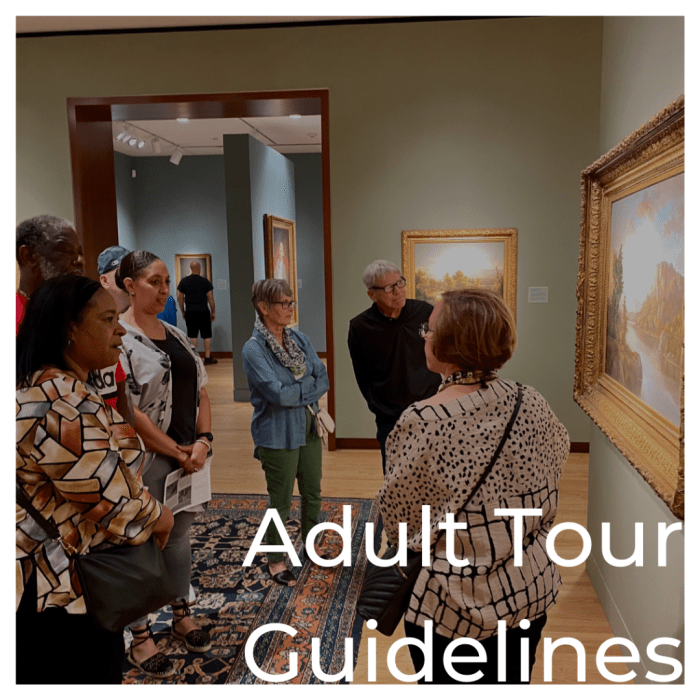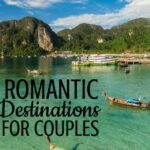Educational Tours For Adults offer a unique blend of learning and adventure, transcending the typical vacation experience. These immersive journeys cater to a diverse range of interests, from historical explorations of ancient civilizations to in-depth studies of culinary traditions or the wonders of the natural world. Whether you’re a seasoned traveler or a curious novice, educational tours provide structured learning experiences, expert guidance, and the opportunity to connect with like-minded individuals, fostering personal growth and intellectual stimulation far beyond the confines of a classroom.
This guide delves into the planning, execution, and marketing of successful adult educational tours, providing practical insights and actionable strategies for both organizers and prospective participants. We explore various tour types, logistical considerations, engaging educational content, sustainable practices, and effective marketing techniques, equipping readers with the knowledge to create and participate in truly enriching and transformative travel experiences.
Educational Content and Engagement: Educational Tours For Adults

Engaging adult learners on educational tours requires a multifaceted approach that transcends traditional lectures. Success hinges on crafting dynamic experiences that cater to diverse learning styles and leverage technology to enhance comprehension and retention. The following strategies aim to maximize learning outcomes and create memorable travel experiences.
Effective educational tours for adults must prioritize interactive learning, catering to varied learning preferences, and integrating technology seamlessly into the curriculum. This ensures a richer, more engaging, and ultimately more effective learning experience.
Engaging Learning Activities
A well-structured itinerary should incorporate a blend of active learning strategies to foster deeper understanding and knowledge retention. This approach moves beyond passive observation and encourages active participation, thereby enhancing the overall learning experience.
- Interactive Workshops: Hands-on workshops focusing on specific skills or techniques related to the tour’s theme. For example, a culinary tour could include a pasta-making workshop, while a historical tour might feature a calligraphy workshop.
- Guided Discussions and Debates: Facilitated discussions and debates on key topics, encouraging participants to share their perspectives and engage in critical thinking. A tour focusing on political history could incorporate a debate on the impact of specific political figures.
- Site Visits and Hands-on Experiences: Visits to relevant locations with opportunities for hands-on interaction. For instance, an archaeological tour could involve participants in a simulated excavation, while a nature tour might include birdwatching and nature photography exercises.
- Guest Lectures and Expert Panels: Inviting guest speakers or forming expert panels to share their knowledge and expertise on relevant topics. A tour focusing on contemporary art could include a lecture by a prominent art critic.
- Role-Playing and Simulations: Immersive activities that allow participants to step into the shoes of historical figures or engage in simulated scenarios. A tour of a historical battle site could incorporate a role-playing exercise where participants act out key events.
Adapting Content for Diverse Learning Styles, Educational Tours For Adults
Recognizing the diverse learning styles within a group is crucial for maximizing engagement and knowledge acquisition. A successful approach incorporates a variety of teaching methods to cater to visual, auditory, kinesthetic, and reading/writing preferences.
- Visual Learners: Incorporate visual aids such as maps, photographs, videos, and presentations. The use of infographics to summarize complex information is particularly effective.
- Auditory Learners: Utilize audio guides, lectures, and discussions to convey information. Incorporating storytelling and anecdotes helps in knowledge retention.
- Kinesthetic Learners: Include hands-on activities, role-playing, and site visits to facilitate active learning. Physical exploration of the environment enhances understanding.
- Reading/Writing Learners: Provide detailed handouts, reading materials, and opportunities for note-taking and reflection. Pre- and post-tour reading assignments can deepen understanding.
Technology Integration for Enhanced Learning
Integrating technology can significantly enhance the educational tour experience, providing opportunities for deeper engagement and personalized learning. This can range from simple tools to sophisticated applications.
- Interactive Apps and Mobile Guides: Providing participants with access to interactive apps or mobile guides with maps, information, and multimedia content. This allows for self-paced learning and exploration.
- Augmented Reality (AR) Experiences: Utilizing AR technology to overlay digital information onto the real-world environment. For example, an AR app could superimpose historical images onto a building’s facade.
- Virtual Reality (VR) Tours: Using VR technology to offer immersive experiences that simulate historical events or environments. This can provide a powerful and memorable learning experience.
- Online Discussion Forums and Collaboration Tools: Facilitating post-tour discussions and collaboration among participants through online forums or collaborative platforms. This promotes continued engagement and knowledge sharing.
Ultimately, the success of an educational tour for adults hinges on a careful balance of engaging content, meticulous planning, and a commitment to responsible tourism. By thoughtfully considering the diverse learning styles of participants, incorporating interactive activities, and prioritizing sustainability, organizers can create unforgettable journeys that foster personal growth, cultural understanding, and a deeper appreciation for the world around us.
Whether you’re planning a tour or simply considering one, the potential for enriching personal and professional development is undeniable.

